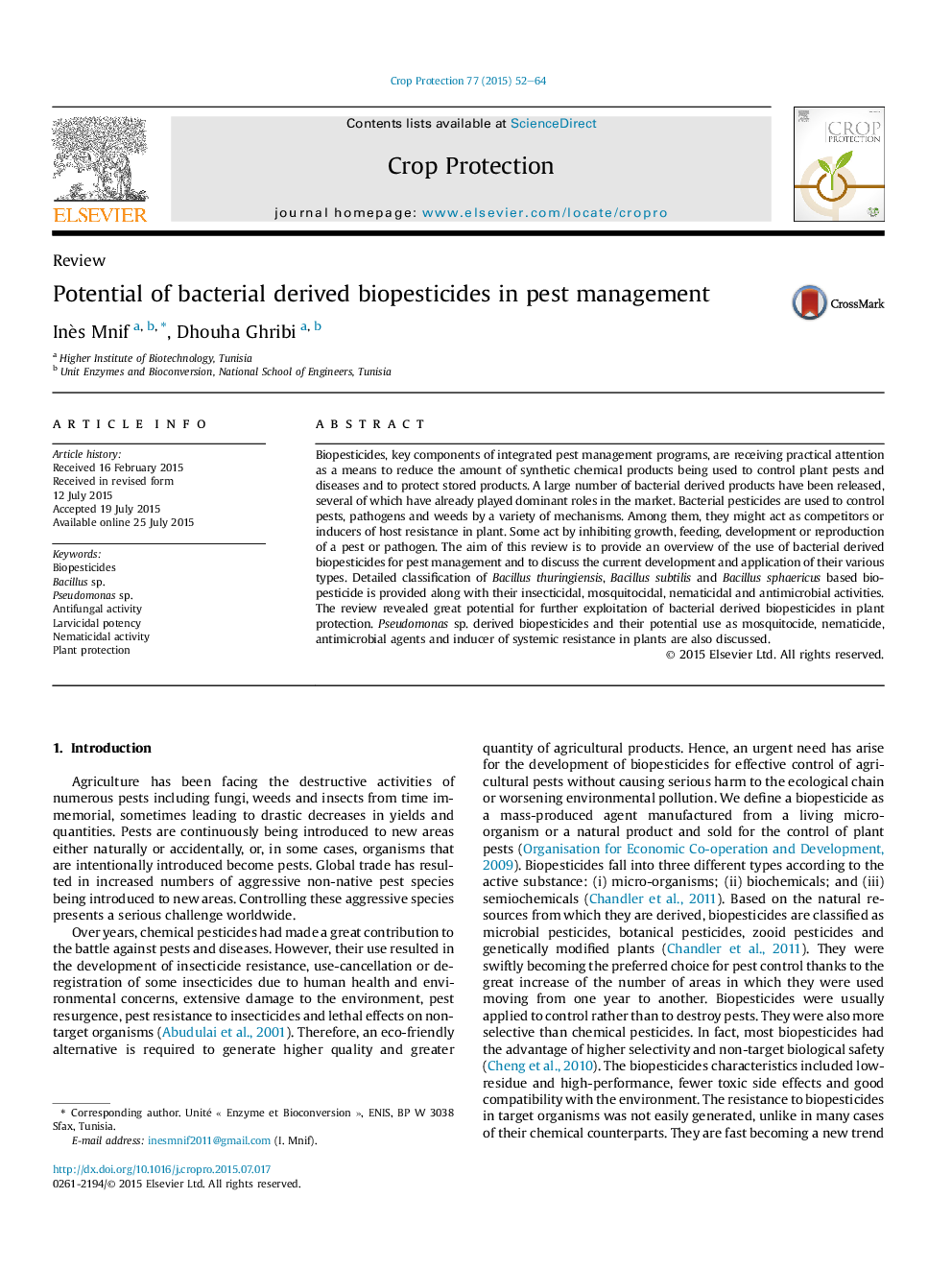| Article ID | Journal | Published Year | Pages | File Type |
|---|---|---|---|---|
| 4505641 | Crop Protection | 2015 | 13 Pages |
•Bacillus subtilis, Bacillus thuringiensis and Bacillus sp. based biopesticides.•Pseudomonas sp. based biopesticides.•Advantages and disadvantages of bacterial related biopesticides.•Mosquitocidal, nematicidal and antimicrobial activities of bacterial pesticides.•Biopesticides as inducer of systemic resistance in plants.
Biopesticides, key components of integrated pest management programs, are receiving practical attention as a means to reduce the amount of synthetic chemical products being used to control plant pests and diseases and to protect stored products. A large number of bacterial derived products have been released, several of which have already played dominant roles in the market. Bacterial pesticides are used to control pests, pathogens and weeds by a variety of mechanisms. Among them, they might act as competitors or inducers of host resistance in plant. Some act by inhibiting growth, feeding, development or reproduction of a pest or pathogen. The aim of this review is to provide an overview of the use of bacterial derived biopesticides for pest management and to discuss the current development and application of their various types. Detailed classification of Bacillus thuringiensis, Bacillus subtilis and Bacillus sphaericus based biopesticide is provided along with their insecticidal, mosquitocidal, nematicidal and antimicrobial activities. The review revealed great potential for further exploitation of bacterial derived biopesticides in plant protection. Pseudomonas sp. derived biopesticides and their potential use as mosquitocide, nematicide, antimicrobial agents and inducer of systemic resistance in plants are also discussed.
